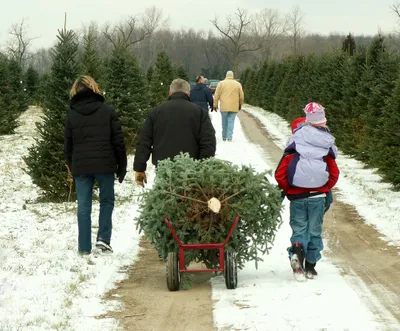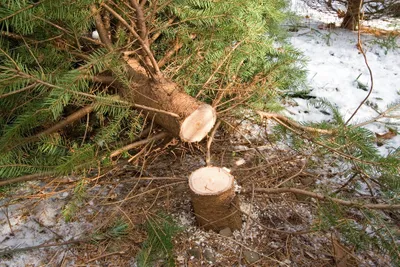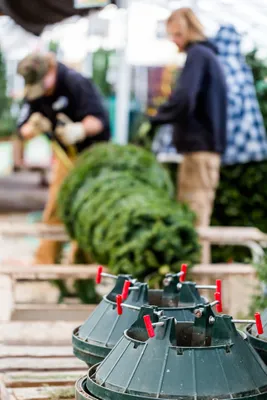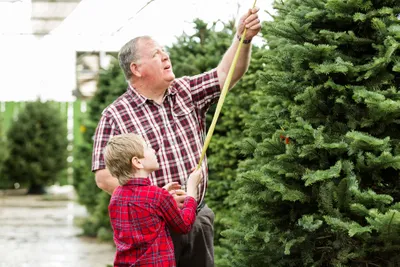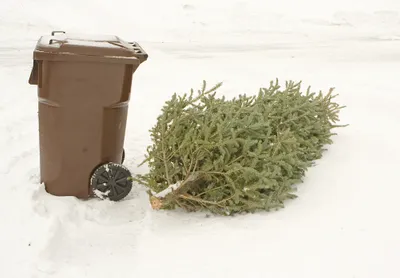Every year millions of families place gifts under a Christmas tree. It’s a long-running tradition that, for most of its history, involved the use of real trees. But these days many people prefer fake trees, which can be used year after year and don’t make a mess in the living room.
The question is, which is the greener option? Is it better to buy a real tree that will dry out in January or a fake tree that can be used for years to come? Here are some things to consider when deciding between a real and fake Christmas tree…
1. Real Trees Are All Natural
Fake trees are just that—fake. They’re made of various plastics that, when disposed of, can be harmful to the environment. Additionally, many fake trees are made elsewhere, such as China, while real trees are produced and processed closer to home.
A real tree can be a pain. After all, it will probably leak sap and needles on your floor. But it can be acquired and disposed of in an environmentally friendly way, and that’s worth noting.
2. Real Christmas Trees are Made Close to Home
Fake trees are complicated products that are often manufactured far from North America. In fact, many are produced across the Pacific Ocean in China, one of the United States’ major trade rivals.
That means fake trees have to be transported long distances to reach you. Not only is that expensive, but it’s hazardous to the environment. Keep this in mind when buying your next Christmas tree.
3. Fake Christmas Trees Contain PVCs
Many fake Christmas trees contain PVCs, or polyvinyl chloride plastics. The problem with this is that PVCs are virtually impossible to dispose of without seriously damaging the environment. They can also be hazardous to humans, particularly if they’re burned or singed.
If you’re determined to buy a fake Christmas tree, make sure to look for one that is PVC-free. Afterwards, take good care of your fake tree—the longer it lasts, the less harm you do to the environment.
4. Studies Back Buying a Real Tree
While it’s difficult to say that every real tree is better for the environment than every fake tree, studies suggest buying the real tree is the greener option. In fact, one study carried out by Ellipsos showed that an artificial tree has three times the impact on climate change and resource depletion than a real tree.
Of course, Ellipsos assumed most people would do away with their fake tree after about 6-years. Should you keep the fake tree for 20-years it may be less harmful to the environment than buying a real tree every year over that two-decade span.
5. Watch for Pesticides
Generally speaking, scientists and environmentalists support buying real Christmas trees over fake trees. But some real trees are grown using pesticides and herbicides, which are bad for the environment and can be harmful to humans when brought into the home.
So, the next time you go to buy a real Christmas tree, be sure to ask the vendor if pesticides or herbicides were used. If they were, keep looking for the perfect tree elsewhere.
6. Cut Your Own, if Possible
Many American states and Canadian provinces allow people to cut down their own trees in lands that must be kept clear anyway for various reasons. For example, areas with hydroelectricity equipment must be kept clear of trees most of the time.
When it comes time to acquire your next Christmas tree, check to see if your area has a program in place that allows people to cut down their own trees. Again, just be sure the tree you cut down is herbicide and pesticide free.
7. Always Recycle!
Whether you opt to purchase a real Christmas tree or a fake tree—always be sure to recycle it when it’s no longer needed. Most areas have an annual recycling program for real Christmas trees, with sessions running through January. If you miss out, be sure to do some digging and dispose of your real Christmas tree in a safe and green way.
If you need to get rid of a fake tree, look for a local drop-off recycling center where you can leave your tree. Most towns and cities have such centers, which can reuse the plastic, glass, metal, and other components found in fake trees.

